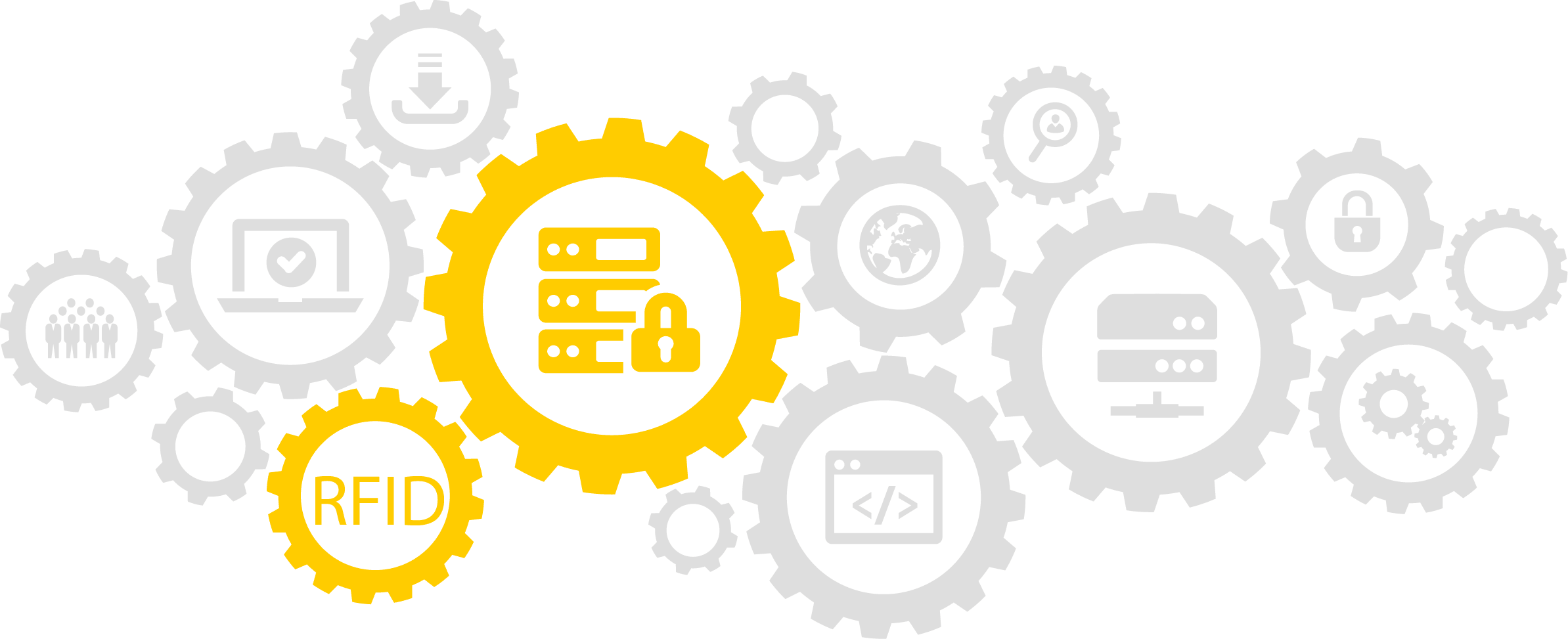RFID as a major source for Big Data
Expert Insights on Asset Loss

We asked Heikki Haavisto, one of our most experienced RFID professionals, to share his experiences with asset loss and the impact RFID can have on inventory management.
Over 250 visited companies, discussion with about 1000 – all around the world – let’s learn from Heikki!
During my career in selling RFID systems, I have visited over 250 companies around the world and had discussions with around 1000 companies. All of these companies have been thinking of implementing RFID into some area of their manufacturing or supply chain. At some point you notice, that many companies have same false assumptions on how RFID works or how RFID should be used to find lost assets. For this reason, I’ve decided to write a blog series about “Busting RFID myths”.
Beyond Expected Benefits: Uncovering RFID's True ROI
In this second series I will discuss the difference between the planned benefits and the real – usually far wider – benefits that RFID eventually bring to a company. You see, we at Turck Vilant Systems, have implemented over 1000 RFID to customers in various industries. So I’m drawing my conclusions and suggestions from quite a wide experience.
An RFID system is typically a sizable investment, so a good ROI calculation is usually made to convince management of the project. When customers calculate their ROI, they include savings from obvious sources such as less manual work, fewer errors, less inventory space required, faster production throughput times, and more. However, the true benefits often only become apparent after the RFID system has been operational for a year or two. That is when customers truly begin improving their operations by utilizing the data captured by the RFID system.
The starting point for RFID very often is clarifying the present.
RFID: From Immediate Fix to Lasting Insight
It’s the nature of RFID to bridge gaps between enterprise business systems. Often, Manufacturing or Enterprise Resource Planning (ERP) tools lack visibility into stock availability data, especially when it resides in a separate Warehouse Management System (WMS). Implementing RFID systems typically addresses this by integrating with a company’s various IT tools. However, data within ERP or WMS systems primarily provides current status, offering little for deeper learning.
The real long-term RFID benefit is the ability to learn and develop operations based on actionable data. When customers analyze the historical data stored in the RFID system, they can, for example, compare different supplier performances, optimize production machine setups, and plan cost-effective preventive maintenance.
RFID's Role as a Big Data Source

Big Data is typically described as voluminous, fast-changing, and originating from various sources in different formats. The main motivation for working with Big Data stems from the promise of improving performance through a better understanding of the world. However, because sources are varied and formats differ, the data must be refined to offer meaningful insights.
RFID is one such data source for Big Data. It can act independently to produce actionable data, or RFID event data can be fed into business intelligence applications to help companies organize all collected data for later action. While combining several data sources always yields the best results, the RFID database alone saves money for several Turck Vilant Systems customers.
Actions from RFID History Data by Real-Life Customers
Optimized picking routes in warehouse > decrease in labour needed
Driving Supplier Improvement > Pinpointing performance variations to facilitate targeted reinstruction or partner consolidation.
Re-organizing floor space > significant space savings
Introducing new set up to production machines > better production quality
As a conclusion, the gain from the RFID system is nearly always much more than the initial ROI calculation will suggest. You can never fully anticipate the true impact of RFID in your initial ROI calculation. This you can only learn from the data collected.
So, I claim that RFID is an awesome tool to remove waste from your operations, but just how much, well you will only know after one or two years when you can measure the true state of the renewed operations. So RFID does not just bring the benefits initially planned, it does more.
Myth busted!
You might also find these interesting
CAse
Big Bag on Track
RFID helps fulfill 100% legal compliance and gain full control over end-to-end production and delivery process from factory to farm.
Middleware
Consolidating Data for Actionable Insight
Track & Trace Middleware from Turck Vilant Systems collects data from and remote manages RFID devices.
Integration
The Bridge for End-to-End Traceability
Our track and trace platform supports a wide level of options for the integration of RFID and RTLS technologies.
